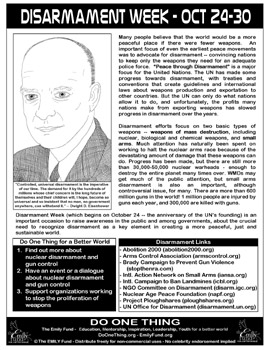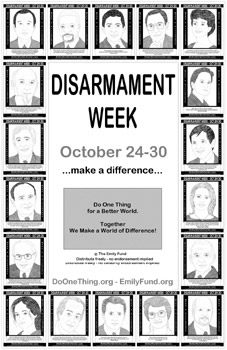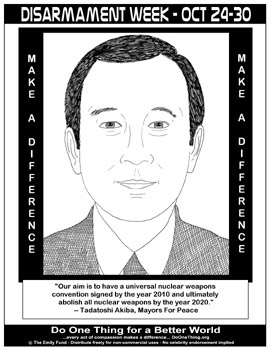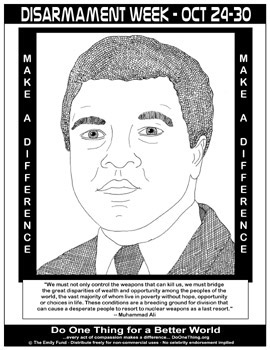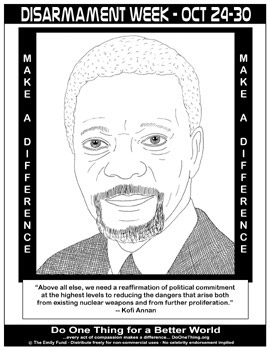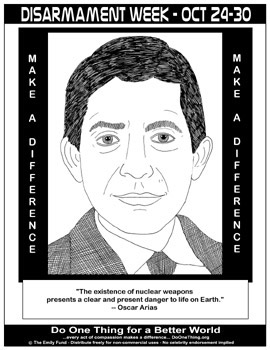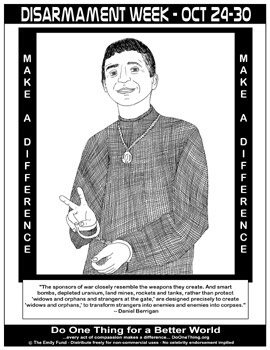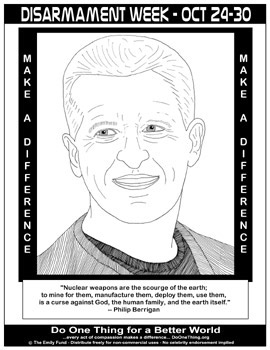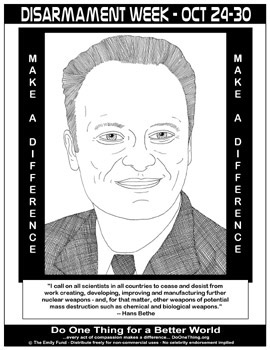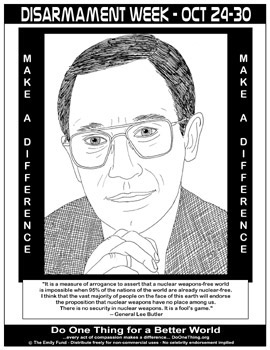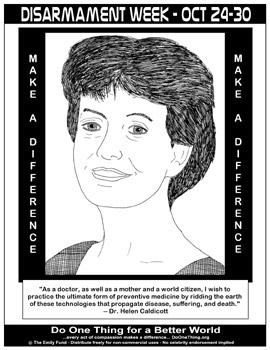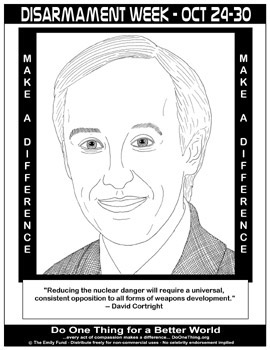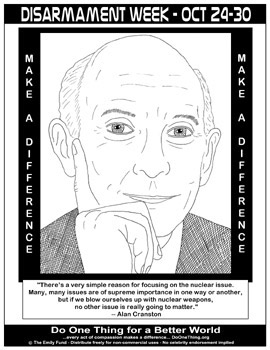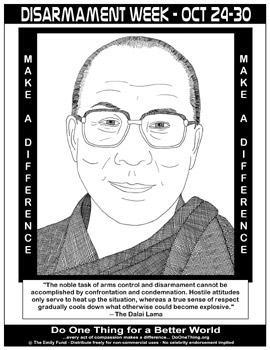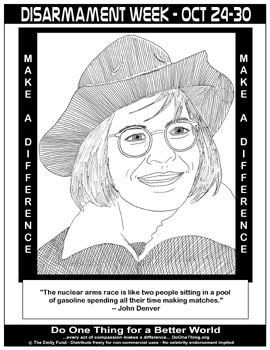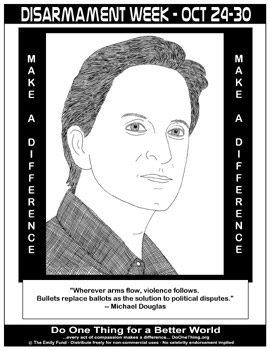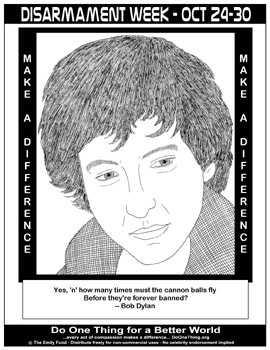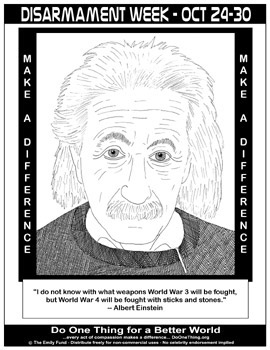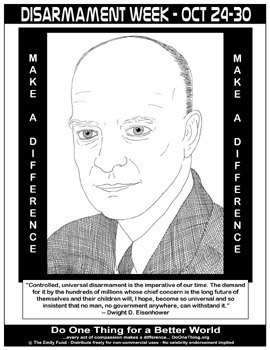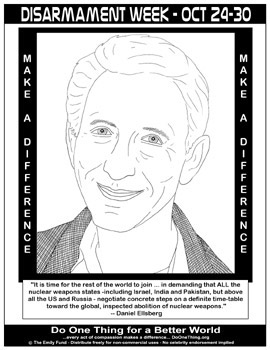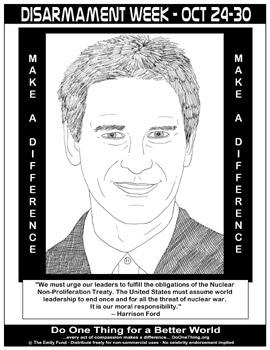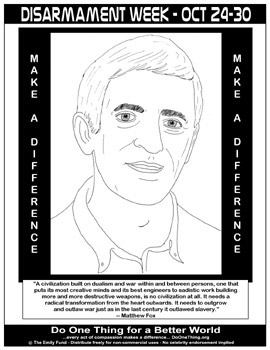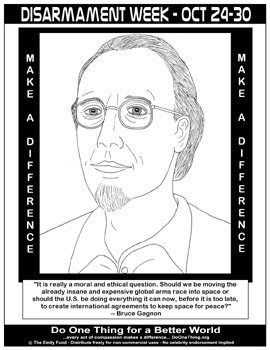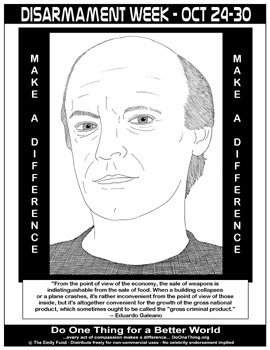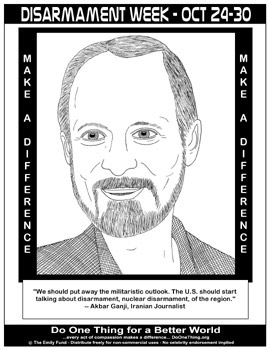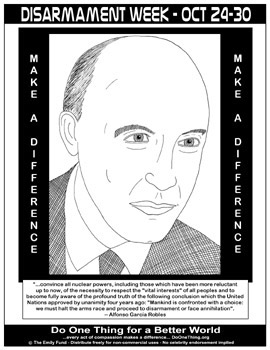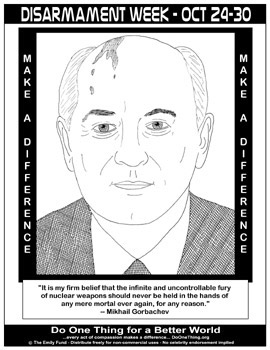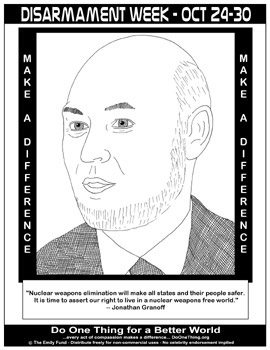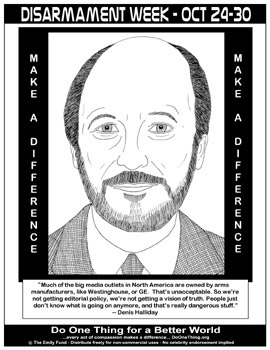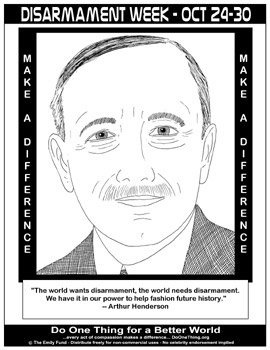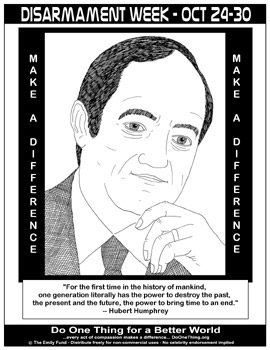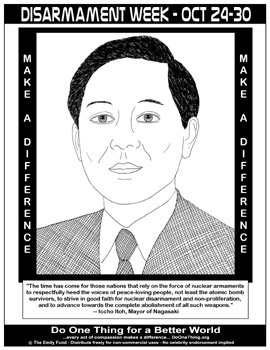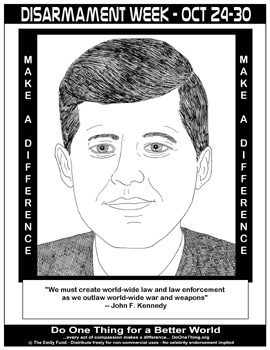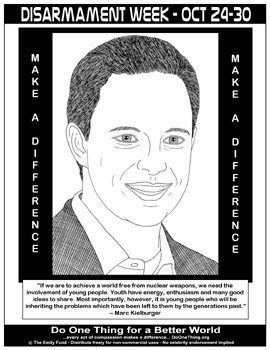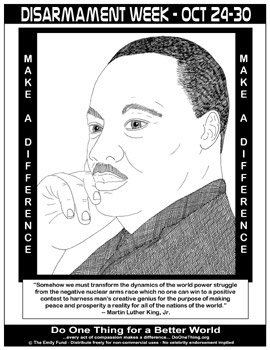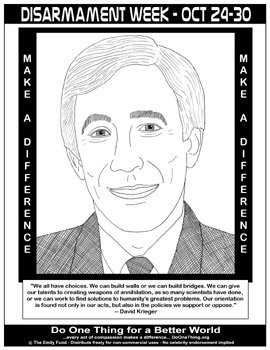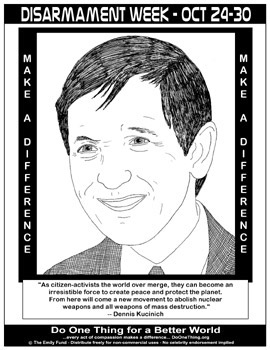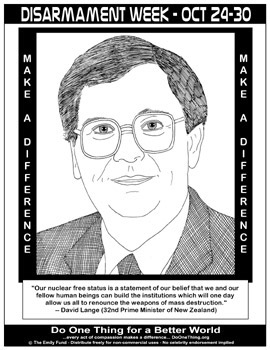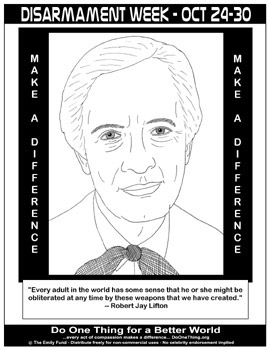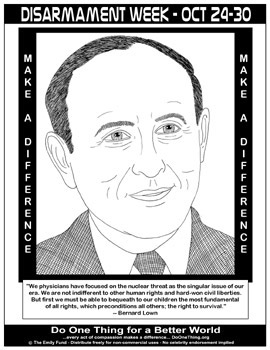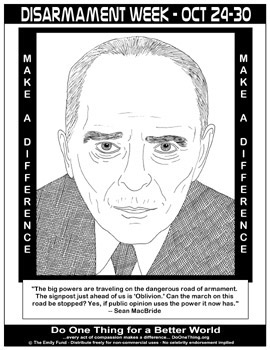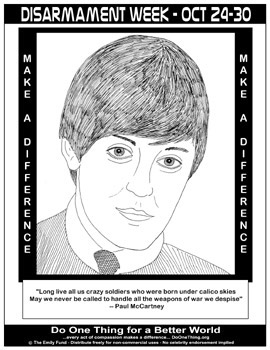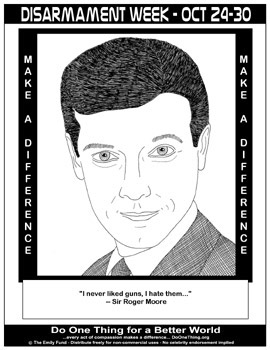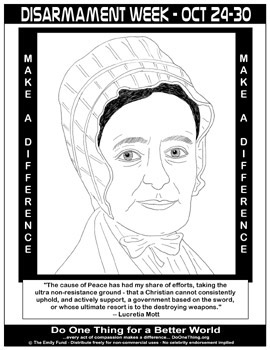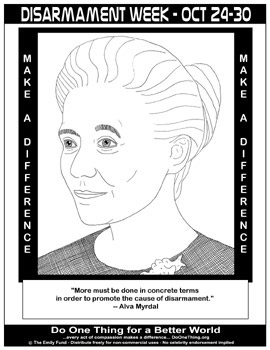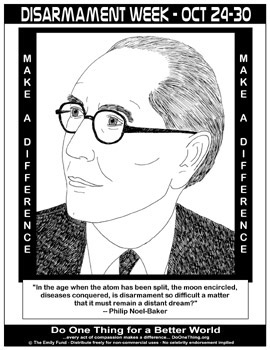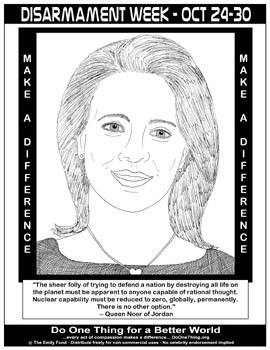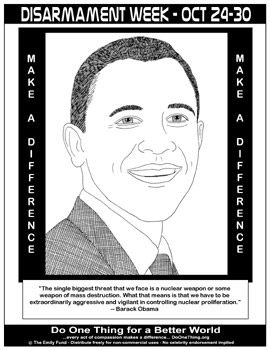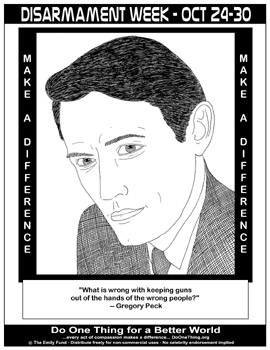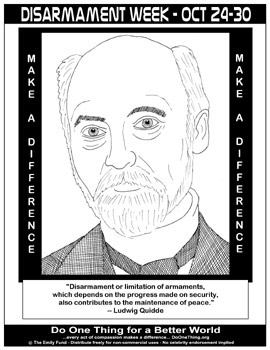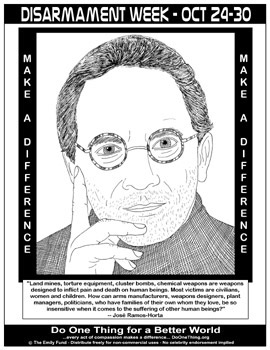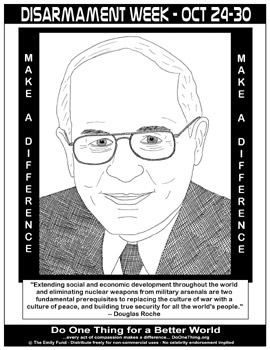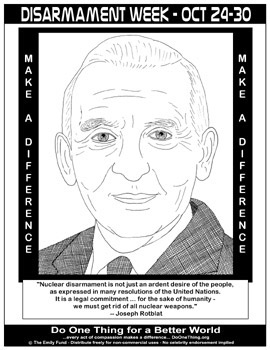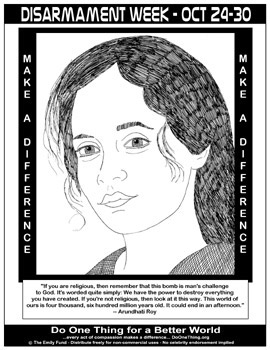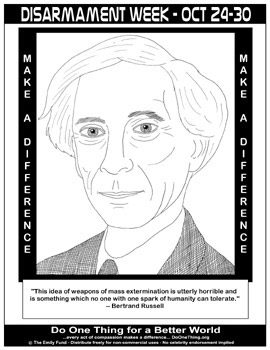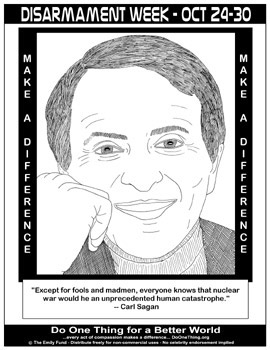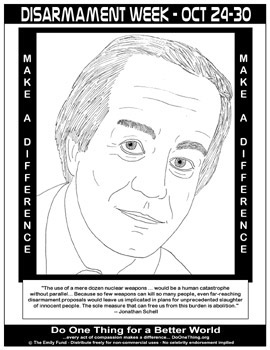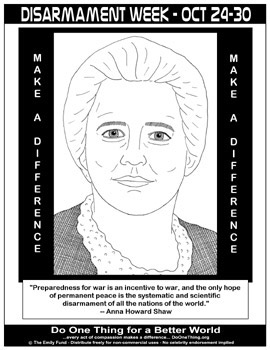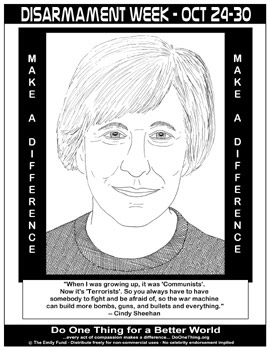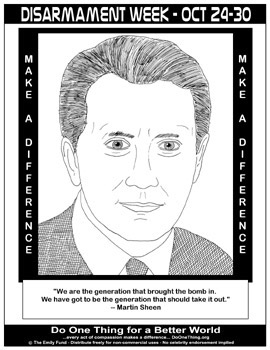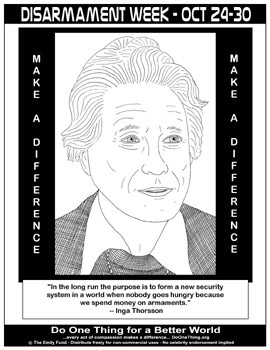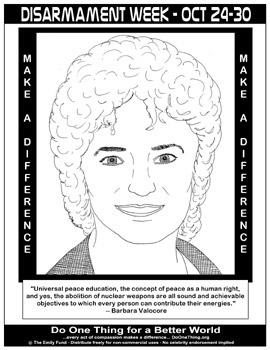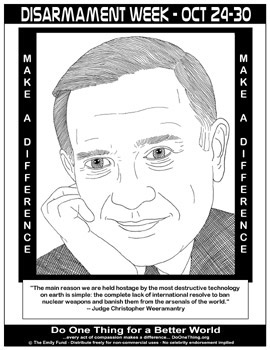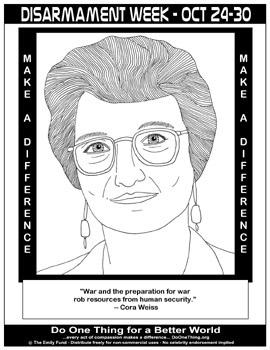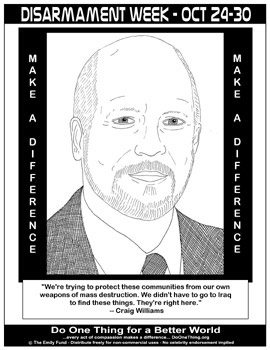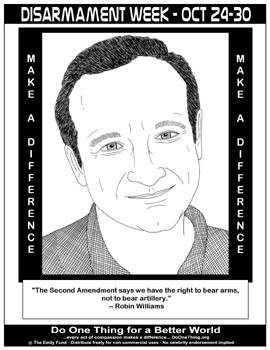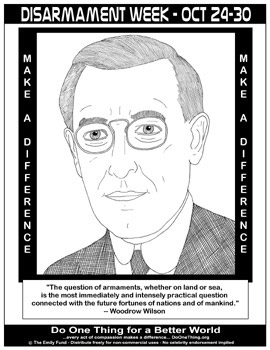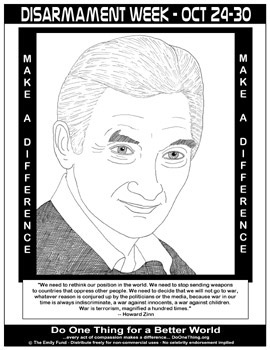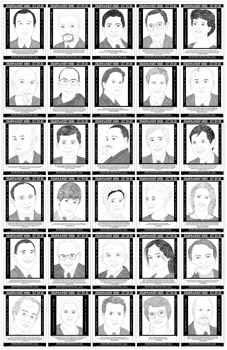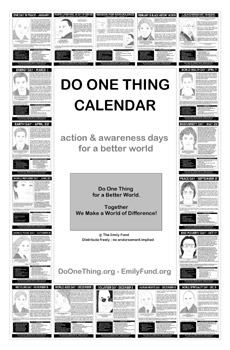Many
people believe that the world would be a more peaceful place
if there were fewer weapons. For this reason, an important component
of even the earliest peace movements was to advocate for disarmament
-- convincing nations to keep only the weapons they need for
an adequate police force.
Of
course weapons are only a tool for the expression of violence
in our world -- there have always been conflicts and wars. But
in the past, most of the victims of wars were the soldiers that
nations sent to fight each other. Today, most victims of weapons
are innocent civilians, and modern weapons have the potential
to kill massive numbers of people at one time.
"Peace
through Disarmament" is a major focus for the United
Nations. This excerpt from the Department for Disarmament Affairs'
vision statement sums up this avenue of the UN's work: "We
acknowledge that disarmament alone will not produce world peace.
Yet we also maintain that the elimination of weapons of mass
destruction, illicit arms trafficking, and burgeoning weapons
stockpiles would advance both peace and development goals. It
would accomplish this by reducing the effects of wars, eliminating
some key incentives to new conflicts, and liberating resources
to improve the lives of all the peoples of the United Nations
and the natural environment in which they live."
The
United Nations has made some progress towards disarmament, with
treaties and conventions that create guidelines and international
laws about weapons production and exportation to other countries.
But the UN can only do what nations allow it to do, and unfortunately,
the profits many nations make from exporting weapons has slowed
progress in disarmament over the years.
Disarmament
efforts focus on two basic types of weapons -- weapons of
mass destruction, including nuclear, biological and chemical
weapons, and small arms. Much attention has naturally
been spent on working to halt the nuclear arms race because
of the devastating amount of damage that these weapons can do.
Progress has been made, but there are still more than 30,000-50,000
nuclear warheads - enough to destroy the entire planet many
times over. In addition, after the end of the Cold War in which
people feared the superpowers could destroy each other, new
fears about the use of these weapons by terrorists or rogue
nations has, in some minds, given us even more reason to fear
these weapons.
WMDs
may get much of the public attention, but small arms disarmament
is also an important, although controversial issue, for many
as well. There are more than 600 million guns in the world!
1 million people are injured by guns each year, and 300,000
people are killed using guns. 200,000 are homicides; 60,000
to 90,000 are killed in conflict areas (with the majority being
civilians) and 50,000 people kill themselves with guns each
year. Most of the major countries export arms around the world.
Although some countries have strict laws regarding exporting
small arms, the global trade in arms is not well regulated,
so that many legally exported guns end up on the black market,
and end up in the wrong hands.
Gun
control is a very controversial issue in the US, with strong
advocates on both sides of the debate. Advocates of gun control
argue that American communities and the world at large would
be safer if there were strict laws regulating the sale and use
of guns, while those arguing for gun rights believe that it
is a fundamental right for citizens to be able to protect themselves.
Because the United States is one of the biggest exporters of
small arms, it is in many ways the battlefield over the question
of small arms disarmament.
Disarmament
Week (which begins on October 24 -- the anniversary of the UN's
founding) is an important occasion to raise awareness in the
public and among governments, about the crucial need to recognize
disarmament as a key element in creating a more peaceful, just
and sustainable world.



